“We created something today in a desolate wasteland that had never seen life.”
—Michael
Here is a terrific episode, the best one of the season. It floats through what feels like the perfectly toned middle act of a great submarine movie, its plot points all emotions, and all of them matter. What makes it work is its intelligent attention to details. This is an episode where character is plot, and it is very hard to make those work, let alone work so well. To do it, you have to be meticulously honest and specifically observant. The episode is very human—emotional and vulnerable, and people behave in the complex ways people do.
I should also say that the propeller thingees are ‘neat’. That’s one of the things we want from our science fiction, so it’s a terriffic bonus.
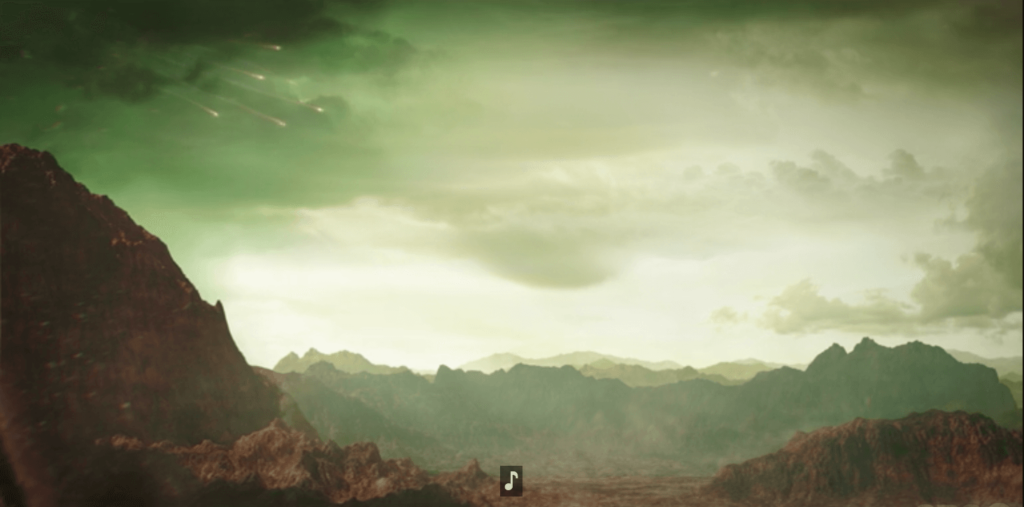
Plot-wise, our ship has just returned from an alternate universe to find themselves nine months later than they should have arrived in their own timeline; and in their universe, the Klingons seem to have almost won the war. We see intelligent specificity in the boarding by the Admiral and Sarek, which is handled just as it would be, with credible levels of both distrust and earned trust.
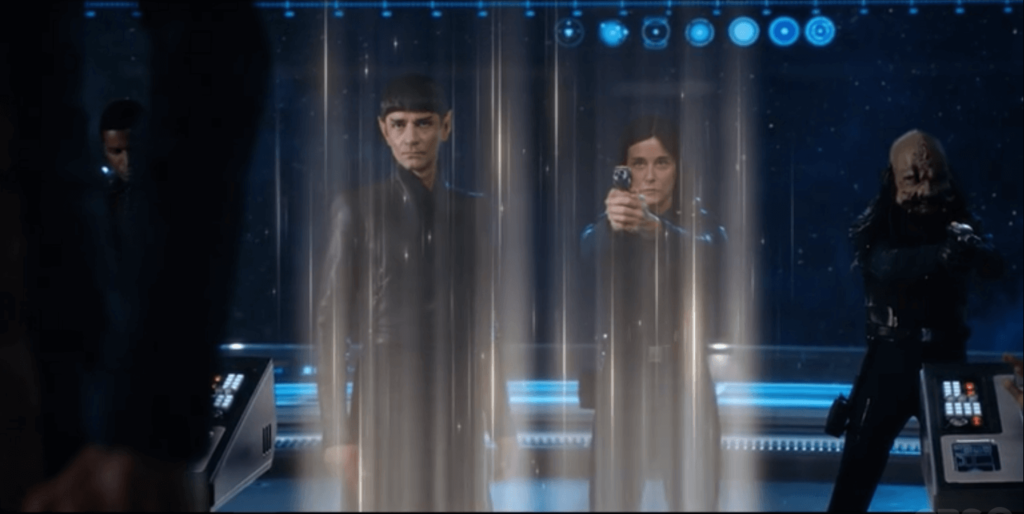
The war has progressed logically in the nine months since Discovery, the Federation’s prime weapon, and its code-breaking of the Klingon’s cloak, simply disappeared from service.
Also, regarding details, I noticed in this episode that Saru has started showing leadership skills: strong ones, which remain well within character for him. Without having an entire episode where he transforms from a bad leader into a good one, the series has developed him into a trustworthy commander.
This is partly notable in his handling of Tyler. Saru does not hold Tyler responsible for Voq’s crimes. To some degree, this extends throughout the ship. Rather than condemn Tyler as a Klingon, Our Heroes try to heal him; even though he was originally Voq, with just an overlay of Tyler.
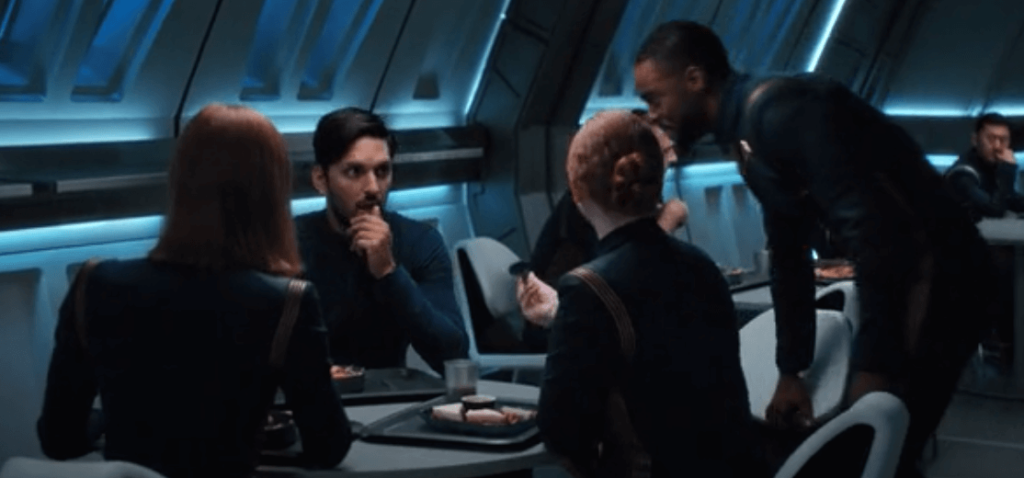
The righteousness of the righteous will be credited to them, and the wickedness of the wicked will be charged against them.
—Ezekiel 18:20, and a good summation of the whole chapter
In a sense, though, he is more culpably Voq than Tyler. It was Voq’s body, altered, and Voq’s mind, altered; yet, of his actions, this Tyler says, “I would do anything to undo what I have done.”
It’s a picture of repentance. That’s what it sounds like sometimes. It’s a burden many of us feel at some points in our lives. Often it is also not a feasible option. What then?
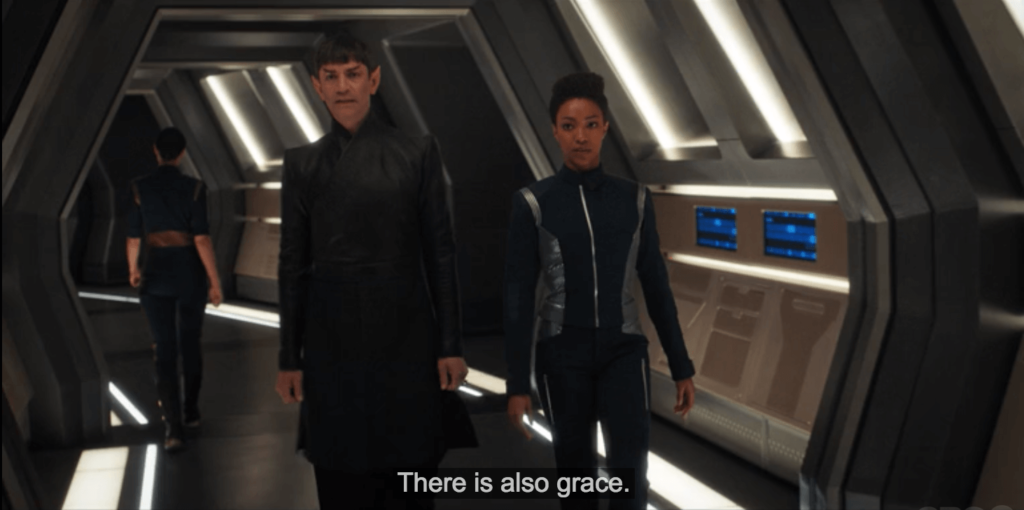
“For what greater source of peace exists than our ability to love our enemy. Do not regret loving someone.” —Sarek, to Michael
Michael and Tyler finally have a scene together, and even the music is perfect, where, especially in this series, it is usually by-the-numbers for modern TV. Here, the score cuts the line so well between what we know about Tyler and what we feel when Michael talks about his hand on her neck. As an activated spy, Tyler, her lover, had tried to kill her. Even though she believes of him, “He is something other, something new,” she cannot get past what he did enough to preserve even their friendship.
Sometimes your repentance is not accepted; you are not forgiven. It’s rough and painful, and being just, both of those can double up the more you think about the reality of not being forgiven. How nice that one of the things we can count on with God is that if we repent, He will forgive us. It’s a given. You don’t get that guarantee with people. Sometimes, when you screw up – when it’s not you that screwed up – the damage is permanent. It’s how life reminds us that what we do really does matter.
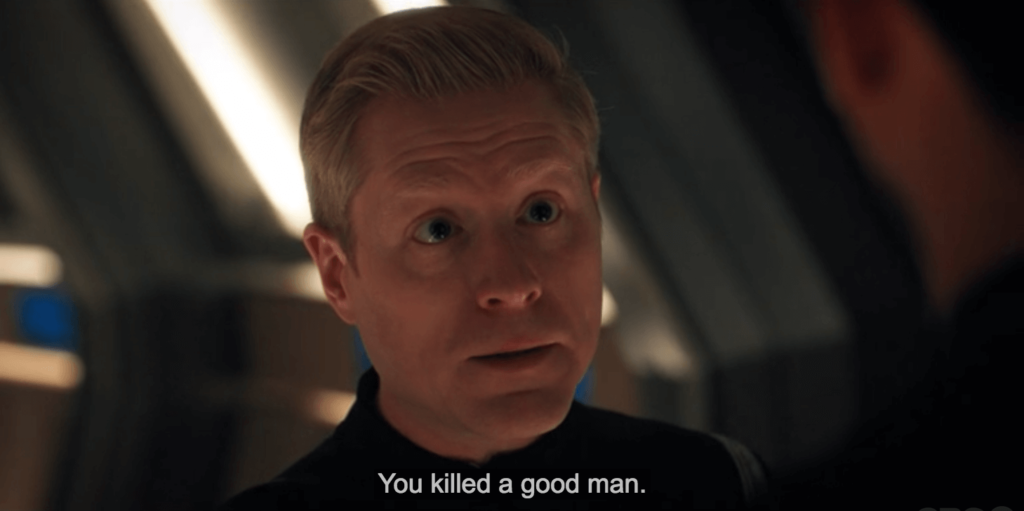
The writing, and let’s credit the acting too, is also well above par in Stamets’ reaction to Tyler, who snappily killed his lover. It is appropriately complex, containing the anger he feels, but also grief, revealing a belief that Tyler may indeed be human. There is even some compassion there.
While being warm and human, this episode still cuts to the chase in every conversation. People ask the things they should and would ask. The admiral asks how the war will end, and an honest Klingon tells her that it will not.
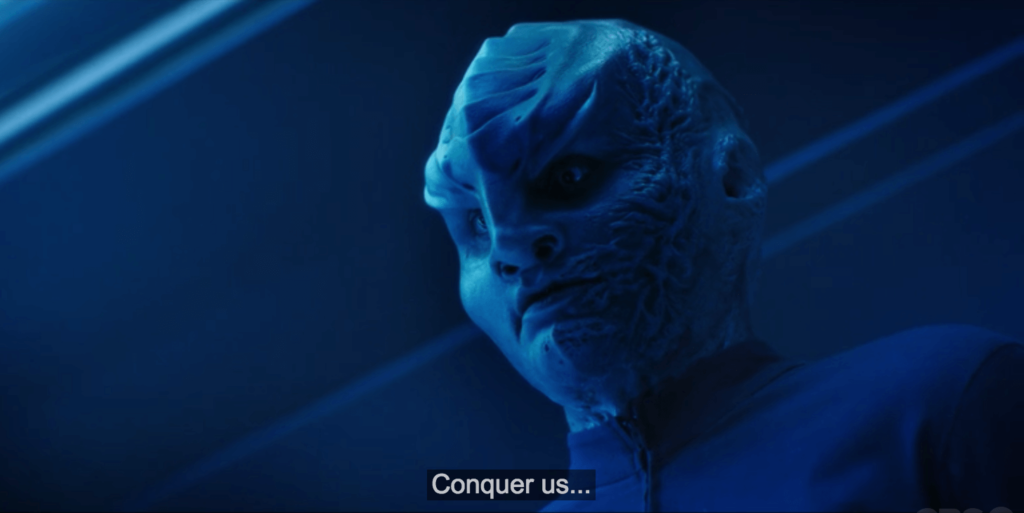
If you do not defeat this enemy, they will ceaselessly pursue your destruction.
There is a time for peace, and a time for war. Even for these peacenik Federationists, this is now war time. The question is no longer “how do we make peace,” but “how do we defeat them.”
Michael’s solution from episode 2 is now the solution everyone believes in, the necessary one– strike hard. So the admiral declares Bizarro-Philippa the new Captain of the Discovery, which is where the episode ends. Like the second-best episode this year, it ends on a disunited note courtesy of the hammer of the show runners pounding on the writers’ hands, the only tonal flaw here.
So, the Emperor will have to guard her nature a bit to maintain the facade. It’s an interesting shackle, but one I suspect won’t hold for long. She will be a tiger unleashed.
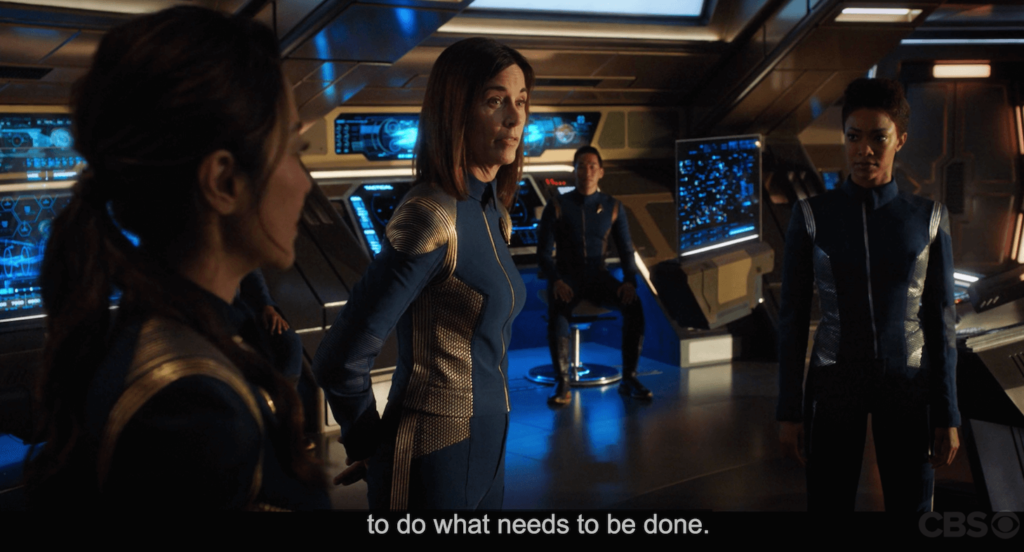
It’s what we do, though, when we really need to fight, and fight ‘dirty’ in order to survive against an incorrigible aggressor. We don’t all run into necessarily messy battles ourselves; we hire an army, allow them to be treated in ways acceptable in no other work environment, even remove some of their civil rights for their service time, and employ them to do what is illegal, even socially immoral, in our own day to day lives. We hire a police force, and task them with doing what is necessary to protect both us and themselves, so that we do not all have to be armed or harmed. We require them to rely on their judgment, and then riot when their decisions, examined after an unfortunate result, a socially hot button result, are found to have been made exactly according to the requirements we have placed on them.
It is hypocritical.
So are we.
I suspect Mirror-Philippa is the necessary evil on which the high leadership of the Federation will choose to rely, and we will spend an episode recoiling at her coldness and lack of ethics. We will be taught once again that the ends do not justify the means, even though we act against that choice every time we hire another soldier or police officer.
And we know it.
“After the battle of the Binary Stars I was so lost,” Michael says in this episode. In the next one, when the Federation decides that it will not use the equivalent of the nuclear bomb, Michael will give that power to someone who would actually use it, in order to achieve the Federation’s desired results. It will be played as the thoughtful alternative that preserves our ideals, and to be truthful, that’s at least partly right. It’s valid, seriously. But she still hands the gun off.
She still hires the cop.
• • •
Trektember is an annual series about Star Trek; this year, we’re examining the first seasons of Star Trek: Discovery and The Orville. For more information on this series, click here; or, to read every article from the beginning, click here!

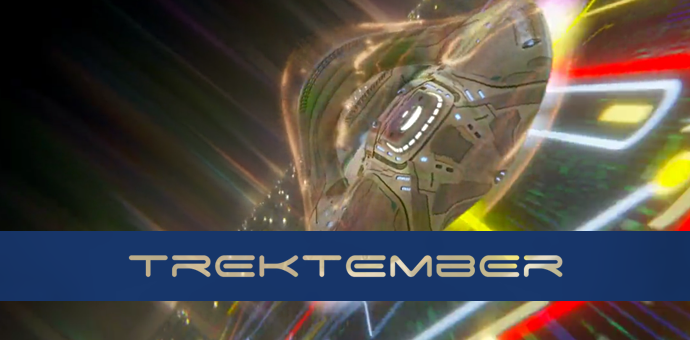
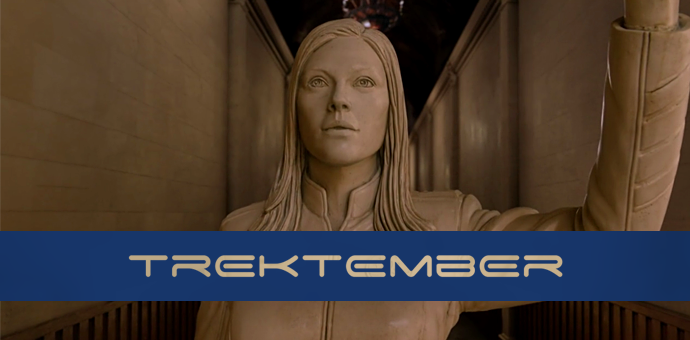
1 comment